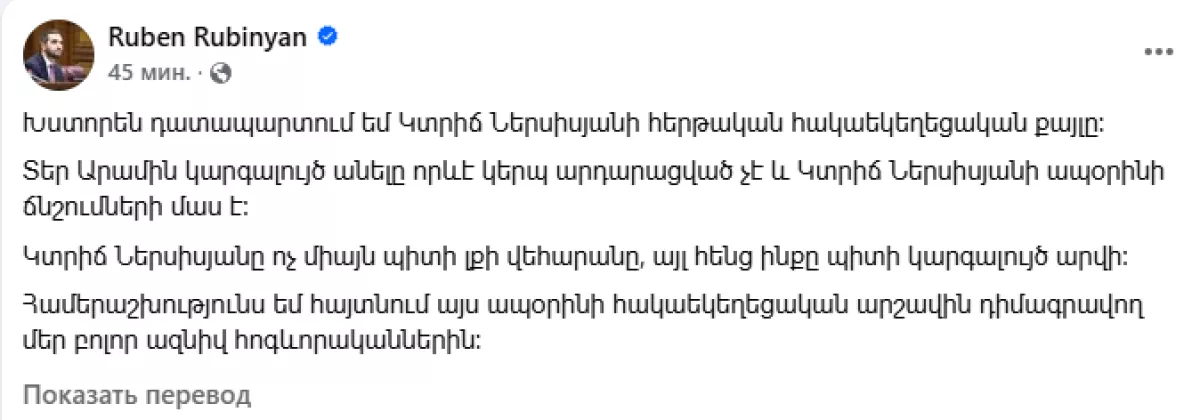Armenian MP calls for ouster of Catholicos Garegin II over defrocking dispute
Ruben Rubinyan, Deputy Speaker of the Armenian Parliament and a senior figure in the ruling Civil Contract party, has issued a scathing condemnation of Catholicos of All Armenians Garegin II, calling for his removal following the defrocking of Father Aram Asatryan.
Rubinyan voiced his criticism in a statement published on Facebook, denouncing the church’s actions as politically motivated and unlawful, Caliber.Az reports.

“The defrocking of Father Aram is entirely unjustified and is part of the unlawful pressure exerted by Ktrich Nersisyan (Garegin II). Ktrich Nersisyan must not only step down from the throne, but he himself must be deposed,” Rubinyan wrote.
He further expressed his support for clergy who, in his words, “are resisting this illegal and anti-church campaign.”
To recall, Catholicos of All Armenians Garegin II has formally defrocked Aram Asatryan, a dissident cleric at the centre of mounting tensions between the Armenian Apostolic Church and the state. Asatryan, now reverted to his secular name, Stepan Asatryan, was stripped of his ecclesiastical status shortly after presiding over what would be his final church rite — a wedding ceremony captured by local journalists.
The defrocking coincided with the detention of 13 clergy members by Armenian law enforcement on October 15, following statements previously made by Asatryan. Among those apprehended was Bishop Mkrtich Proshyan, head of the Aragatsotn Diocese and a nephew of the Catholicos himself. Three individuals, including the bishop, now face criminal charges ranging from unlawful coercion of citizens to participate in assemblies to large-scale misappropriation of property and abuse of official authority to obstruct electoral rights.
This wave of clerical prosecutions follows the high-profile sentencing of Archbishop Mikael Ajapahyan in June 2025, who received a two-year prison term for allegedly inciting regime change. The Armenian Apostolic Church condemned that verdict as politically driven, framing it as part of an ongoing campaign to suppress religious dissent.
By Vafa Guliyeva








